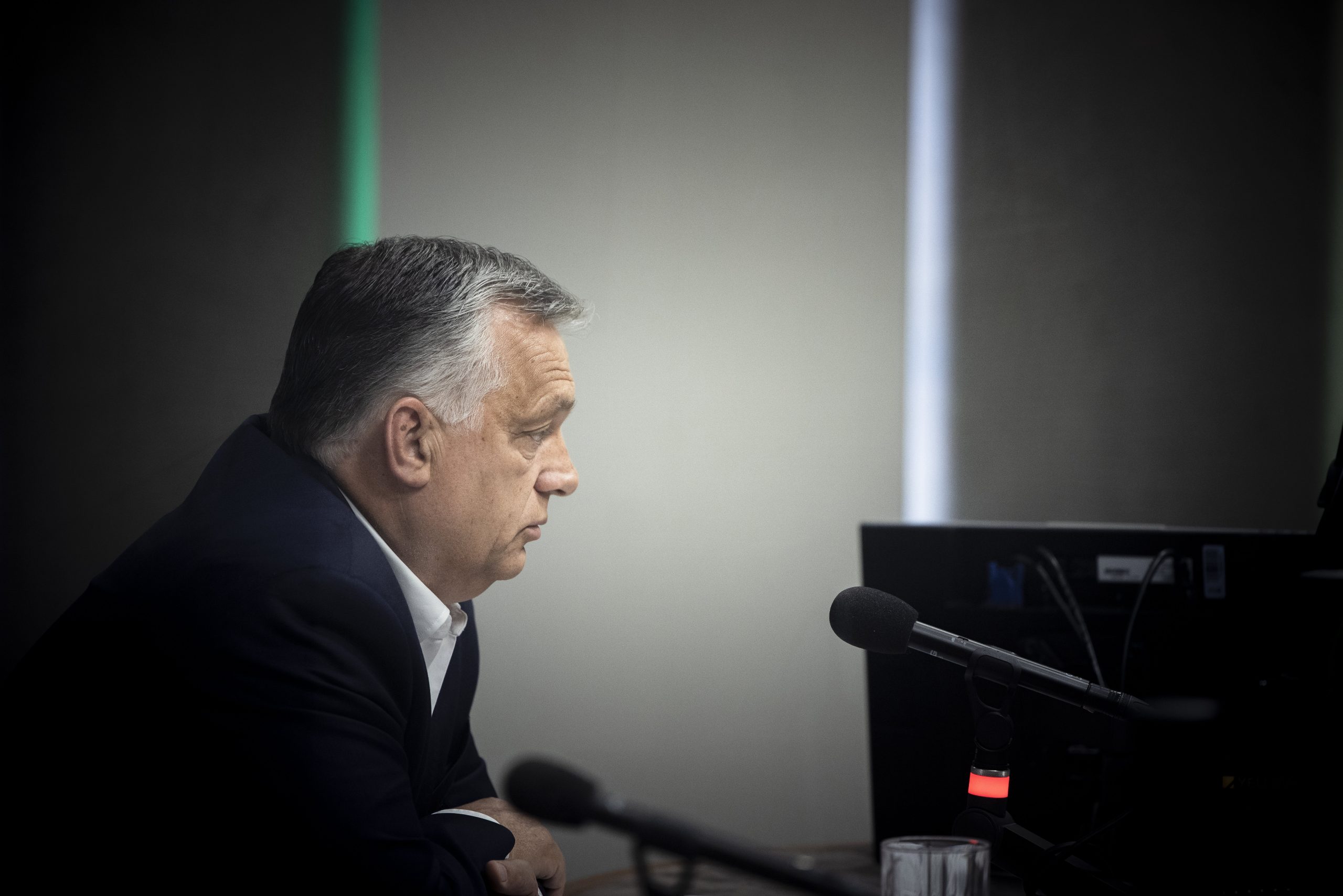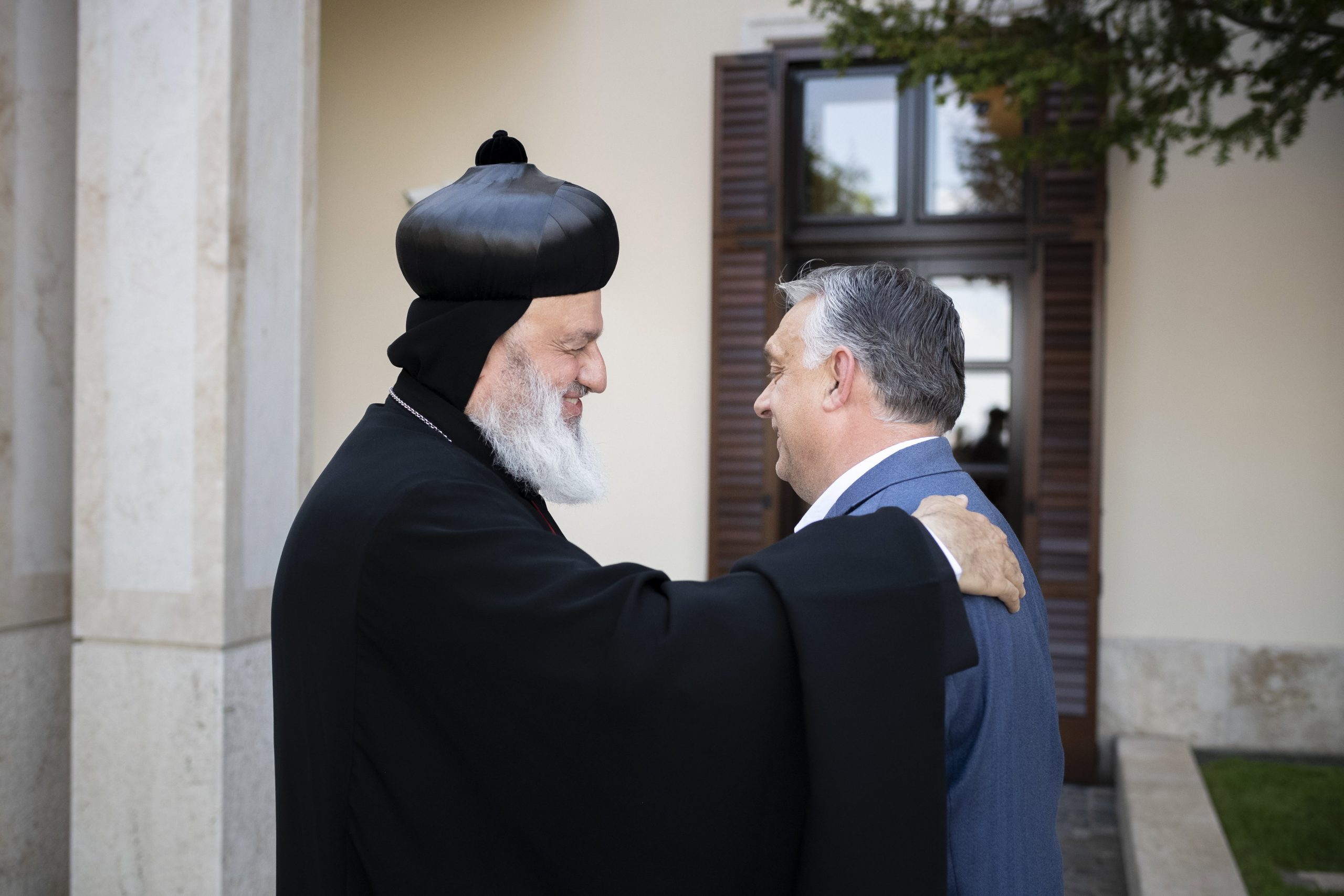
Replacing Russian oil imports would take years and cost several hundreds of millions of forints, while changes to Hungary's energy transmission system would cost thousands of billions of forints, the prime minister said.Continue reading

Prime Minister Viktor Orbán met Patriarch Ignatius Aphrem II of the Syriac Orthodox Church in Budapest on Thursday. The patriarch was one of the Orthodox Christian leaders who turned to Orbán for help in “stopping the European Commission’s plan to impose sanctions on Patriarch Kirill of Russia.”
This article was originally published on our sister-site, Ungarn Heute.
Protest against sanctioning
A growing number of Orthodox Church leaders are supporting Hungarian Prime Minister Viktor Orbán in his efforts to block the European Commission’s plan to put Russian Patriarch Kirill on the EU sanctions list, Bertalan Havasi, the prime minister’s press chief told state news agency MTI last Friday. The names include Pastor Sviatoslav Bulah, adviser to the primate of the Hungarian diocese of the Russian Orthodox Church, Serbian Orthodox Patriarch Porfirije and also Syriac Orthodox Patriarch Ignatius Aphrem II, who traveled to Budapest on Thursday to meet the Hungarian prime minister.
Including a Christian leader on a sanctions list would “set a precedent that would confuse millions of Christians,”
said Ignatius Aphrem II. He also thanked Hungary for consistently aiding Christian communities in need.
Orbán pledged Hungary would not support sanctioning religious leaders as such a step would impact the religious freedom of Hungarian communities, “which is sacred and inviolable”.
Sanctions against the head of the Russian Orthodox Church?
In its sixth package of sanctions, the European Commission proposed to include the head of the Russian Orthodox Church on the European Union blacklist. EU diplomats who have seen the paper confirmed that the Patriarch will also be sanctioned.
Why was he put on the list?
Moscow Patriarch Kirill I is said by critics to support the war course of Russia’s President Vladimir Putin. The European Commission would not only ban him from entering the EU, but would also freeze his secret assets, estimated at billions of dollars.
Pope Francis also talked with Kirill
Recently, Pope Francis also held talks with the patriarch and said in an interview after the meeting,
“I spoke to him for 40 minutes via Zoom,” the Pope told Italian daily Corriere della Sera in an interview published Tuesday. “The first 20 minutes he read to me, with a card in hand, all the justifications for war.”
“I listened and told him: I don’t understand anything about this,” said the Pope. “Brother, we are not clerics of state, we cannot use the language of politics but that of Jesus.” “The Patriarch cannot transform himself into Putin’s altar boy.” (…) Therefore, we must look for ways of peace and cease the fire of weapons,” the Pope said.
Meanwhile, the Russian Orthodox Church said the Pope’s comments were “regrettable,” in a statement Wednesday.
It is regrettable that a month and a half after the conversation with Patriarch Kirill, Pope Francis has chosen the wrong tone for conveying the contents of the conversation,” said the Department of External Relations of the Russian Patriarchate. “Such declarations do not contribute to establishing a constructive dialogue between the Roman Catholic Church and the Russian Orthodox Church which is particularly necessary at this time,”
the statement said.
The two church leaders held talks by videoconference in mid-March. The Holy See Press Service said at the time that Pope Francis asked Patriarch Kirill to “unite their efforts in the name of peace.” The Russian Orthodox Church said after the meeting that the parties discussed the situation in Ukraine, paying particular attention to the “humanitarian aspects of the current crisis and the measures taken by the Russian Orthodox Church and the Roman Catholic Church to overcome the consequences of the crisis.” The pope and Patriarch Kirill expressed their hope that a just peace will be achieved as soon as possible.
Earlier, regarding the EC’s blacklist, State Secretary Tirstan Azbej said that whereas Hungary condemned Russia’s attack on Ukraine and supported various sanctions, Hungary supported brokering peace and “sees counterproductive, nonsensical sanctions as harmful”.
The Russian Orthodox Church has some 160 million members and 40,000 priests worldwide, Azbej noted, adding that the EU’s “crazy” proposal would ban the patriarch from entering the bloc, isolating religious people from their spiritual leader, stressed the state secretary.
Featured photo by Benko Vivien Cher/PM’s PRess Office/MTI